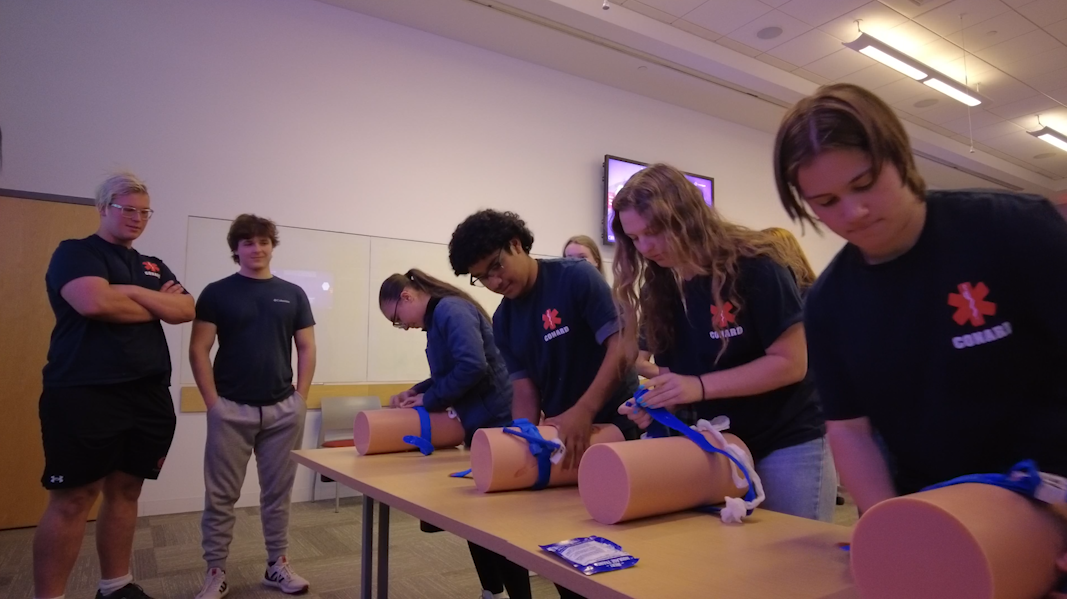To be pregnant during a pandemic raises many questions for women and families across Connecticut. Research has shown that expectant mothers who become infected with the coronavirus can face higher risks for complications.
“It’s a little bit indescribable,” said Jessica Abrantes-Figueiredo, who is expecting her third child in a matter of weeks. She is among the many women who have recently made a decision about whether to receive the COVID-19 vaccine.
“What are we going to do with the pandemic going on, how will we be able to do this all safely?’” Abrantes-Figueiredo said of the discussions she had with her husband after learning of the pregnancy.
“I was left with the question ‘Well, what do I do?’” said Abrantes-Figueiredo, referring to the decision of whether to vaccinate while pregnant.
Get Connecticut local news, weather forecasts and entertainment stories to your inbox. Sign up for NBC Connecticut newsletters.
Abrantes-Figueiredo, C. Anneliese Stahl, and Lauren Lewis not only asked that question of their own doctors, they also regularly receive vaccination-related questions from their patients. All three women are medical professionals at St. Francis Hospital in Hartford. Dr. Lewis is the director of Labor & Delivery, Stahl is Labor & Delivery nurse manager and Dr. Abrantes-Figueiredo is chief of Infectious Disease.
Abrantes-Figueiredo’s first COVID-19 vaccine occurred 18 weeks into her pregnancy. The second shot was a few weeks later, she said.
Local
“Did it make me pause? Absolutely. But for me it was a no-brainer,” said Abrantes-Figueiredo. “There’s been no abnormal or red-flag signals suggesting that there’s any adverse effects to mom or baby.”
Pregnant women were not included in the initial round of vaccine trials. Though data on the impact of vaccinations on pregnancy is not yet complete, time is of the essence for moms-to-be.
“I was curious and hopeful and had a lot of questions,” said Stahl, who is expecting a baby boy in late July. She, too, made the personal decision to get the shots after pouring over what she calls ‘limited but reassuring’ data.
“More information has come out that’s made me even more confident in my decision,” Stahl said. “The first chance I could, I signed up and got my first dose.”
The latest study from CDC researchers analyzed reports between Dec. 14, 2020 and Feb. 28, 2021 from 35,691 women in the U.S who received the Moderna or Pfizer vaccinations while pregnant. Participants ranged in age from 16 to 54. Rates of miscarriage, premature birth and other complications were comparable to those in pregnant women prior to the pandemic, according to the study which was published in the New England Journal of Medicine in April. None of the women involved in the study received Johnson & Johnson’s one-shot vaccine, which became available after the study.
The CDC and FDA have stated that most of the pregnancies the agencies are monitoring are ongoing. Researchers will need to follow cases long-term to fully understand the effects of the vaccine.
The American Society for Reproductive Medicine (ASRM) recently reaffirmed its endorsement of vaccination during pregnancy.
“COVID-19 vaccination is recommended for women who are contemplating pregnancy or who are pregnant in order to minimize risks to themselves and their pregnancy,” the ASRM said in a statement.
The American College of Obstetricians and Gynecologists (ACOG) has said that Covid-19 vaccination should be available to women who are pregnant and to those who are breastfeeding.
"In the interest of patient autonomy, ACOG recommends that pregnant individuals be free to make their own decision regarding COVID-19 vaccination," the group stated.
“Having COVID is probably worse than anything I could give my child through breastmilk,” said Lewis, who received her vaccine postpartum and is currently breastfeeding.
The CDC has said that several recent preliminary studies investigated whether the Moderna and Pfizer vaccines offer protection to newborns through nursing and found reassuring outcomes.
“The science has shown that more than likely since I got the vaccine while I was breastfeeding that I have passed on some antibodies to my infant daughter,” Lewis said.
“Women are not only being able to protect themselves while pregnant but are potentially passing on good antibodies to baby against COVID-19,” said Abrantes-Figueiredo.
Medical experts advise pregnant women who have vaccine questions to have discussions with their own doctors.
“Everyone deserves the right to ask those questions, seek out the information that they need to help them feel comfortable with the decision that they’re making for themselves,” said Stahl.



